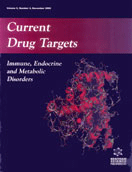Abstract
In recent years, several lines of epidemiologic, clinical and experimental evidences have been reported showing that estrogen hormones may be involved in malignant colorectal tumors. The sex differences in site-specific incidence, the increased incidence of colonic cancer in women with breast cancer, the protective effect of increasing parity and the reduced risk among women taking postmenopausal hormones, are all elements suggesting that sex hormones may play a role. Male rats experimentally exposed to the carcinogen dimethylhydrazine, have twice the risk of developing colon cancer and significantly shorter survival times than their female counterparts. Along with the clinical, experimental and epidemiologic findings there are also biologic reasons why estrogen may be protective. Most estrogen action appears to be exerted via the estrogen receptors (ERs) on target cells. ERs have been reported in several solid tumors including gastrointestinal neoplasms such as esophageal, gallbladder, gastric and colorectal cancer. At the end of 1995, a second ER (ER-b) was cloned from the rat prostate cDNA library and subsequently, the human and mouse homologs. Its demonstration in normal and neoplastic human colorectal tissues and " in vitro" in colonic epithelial cells, has renewed interest in investigating the existence of two ER subtypes. The presence of two ERs could explain the selective actions of estrogens on different target tissues and, particularly, on the gastrointestinal tract. Finally, our studies suggest that estrogens and their receptors play an important role in the growth and progression of colorectal tumors, by interacting with other molecules required for cell proliferation like growth factors and polyamines.
Keywords: Colorectal Cancer, carcinogen dimethylhydrazine, gastrointestinal neoplasms, immunoblot, decarboxylation, polyamine synthesis
 28
28


















